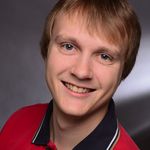This project is concerned with non-compact Riemannian manifolds which are so-called “large”. Concretely, we consider macroscopic dimension as a measure of largeness, and being hypereuclidean as a strong form of having full macroscopic dimension. The goals are to investigate the behaviour of these two notions in geometric situations where we have a suitable large submanifold, to relate them to macroscopic positive scalar curvature, and to explore them in the world of simplicial non-positive curvature.
Publications
We construct a natural transformation between two versions of G-equivariant K-homology with coefficients in a G-C*-category for a countable discrete group G. Its domain is a coarse geometric K-homology and its target is the usual analytic K-homology. Following classical terminology, we call this transformation the Paschke transformation. We show that under certain finiteness assumptions on a G-space X, the Paschke transformation is an equivalence on X. As an application, we provide a direct comparison of the homotopy theoretic Davis–Lück assembly map with Kasparov’s analytic assembly map appearing in the Baum–Connes conjecture.
Related project(s):
45Macroscopic invariants of manifolds
For a countable group G we construct a small, idempotent complete, symmetric monoidal, stable ∞-category KK^G_sep whose homotopy category recovers the triangulated equivariant Kasparov category of separable G-C*-algebras, and exhibit its universal property. Likewise, we consider an associated presentably symmetric monoidal, stable ∞-category KK^G which receives a symmetric monoidal functor kk^G from possibly non-separable G-C*-algebras and discuss its universal property. In addition to the symmetric monoidal structures, we construct various change-of-group functors relating these KK-categories for varying G. We use this to define and establish key properties of a (spectrum valued) equivariant, locally finite K-homology theory on proper and locally compact G-topological spaces, allowing for coefficients in arbitrary G-C*-algebras. Finally, we extend the functor kk^G from G-C*-algebras to G-C*-categories. These constructions are key in a companion paper about a form of equivariant Paschke duality and assembly maps.
Related project(s):
45Macroscopic invariants of manifolds
Team Members
Jun.-Prof. Dr. Alexander Engel
Project leader
Universität Greifswald
alexander.engel(at)uni-greifswald.de
M.Sc. Felix Physiker
Doctoral student
Universität Greifswald


